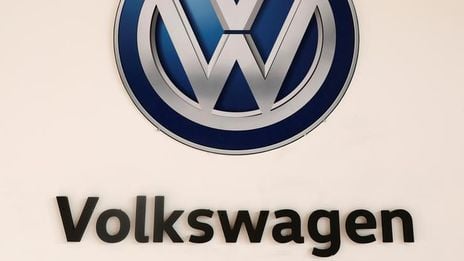LOS ANGELES (Reuters) - Volkswagen AG (>> Volkswagen AG) wants the workers at its Tennessee plant represented by a German-style works council, but the final form of representation and whether that includes the United Auto Workers union must be decided by the employees in a formal vote, the automaker's top U.S. executive said on Wednesday.
"Our strong desire is to have a works council present in Chattanooga," Jonathan Browning, Volkswagen Group of America's president and CEO, said in an interview at the Los Angeles Auto Show. "The challenge in a U.S. context is how to bring that into being. That's obviously the point of discussion in terms of how you actually move forward."
The UAW has pushed VW to accept a German-style labor council at the plant in Chattanooga, which would require the involvement of the U.S. union under American labor law. VW said in September it was in talks with the UAW about establishing such a labor council at the plant, which would be a first for the U.S. union.
The UAW, which has lost membership over the past three decades because of increasing automation and job cutbacks by General Motors Co (>> General Motors Company), Ford Motor Co (>> Ford Motor Company) and Chrysler Group LLC, wants to organize VW workers to gain a toehold in the U.S. South, where foreign automakers have nonunion factories.
A successful push by the UAW at VW's Tennessee plant would be significant for the union and for organized labor in the United States, where union membership fell to 11.3 percent of the workforce in 2012, the lowest percentage in 76 years.
The UAW has pushed Volkswagen to recognize the union as the representative of workers at Chattanooga, based on cards endorsing the union signed by more than half of the plant's 1,570 workers.
In Germany, a works council represents both blue-collar and white-collar workers. It represents employees on work rules in the plants and some other dealings with the company, but wages and benefits are negotiated by IG Metall. The German union has backed the UAW's efforts.
But Browning said any decision on how the workers are represented will ultimately be made by those affected.
"The critical thing that we have emphasized really consistently is that that decision in terms of representation will be taken by the employees and through a formal vote. And so there will be an election process by which the employees decide on how they wish to be represented."
MID-SIZED SUV
VW's top labor leader visited Chattanooga last week to meet with officials and local politicians. Browning said Bernd Osterloh, the head of VW's global works council, has reaffirmed his support for a works council setup in Tennessee.
Browning said the topic has been discussed heavily and employees need to have "informed views" of their options.
"There has to be some level of debate," he said. "Obviously, we're looking for it to be as constructive as possible."
VW's board meets this week, but a decision by the board on whether to allow the UAW to represent workers at the VW Tennessee plant, in tandem with a German-style works council, does not seem likely soon.
However, Browning still expects a decision before the end of the year on where the German automaker will be a mid-sized, seven-passenger crossover utility vehicle. The options include Chattanooga and Mexico. He said the Tennessee plant can add a second product without needing to expand.
VW has said the vehicle, based on the "CrossBlue" concept unveiled in January at the Detroit auto show, would be sold in the U.S. market by 2016 or 2017.
Browning said adding a mid-sized SUV is a "top priority."
Browning later told reporters that another U.S. growth opportunity for VW is the compact hatchback market with the redesigned Golf making its debut next year. He also said the Polo, which is smaller than the Golf, could be successful in the United States, but it would need to be built in North America to make economic sense and that vehicle was not a priority in the near term.
Browning told Reuters that commercial vehicles are another growth area eventually, echoing previous comments by VW, but were "not an immediate opportunity."
He said VW still expects U.S. industry new-car sales to finish at 15.5 million to 15.6 million vehicles this year, which would be up from 14.5 million last year.
Browning added that U.S. industry sales in November should accelerate toward the end of the month.
"A lot of business typically gets conducted after the Thanksgiving holiday, so we'll see November run pretty strong towards the end of the month," he said. "And there's a weekend at the end of the month, so that always means it's a pretty active close to the month."
(Editing by Matthew Lewis)
By Ben Klayman

 By
By 




